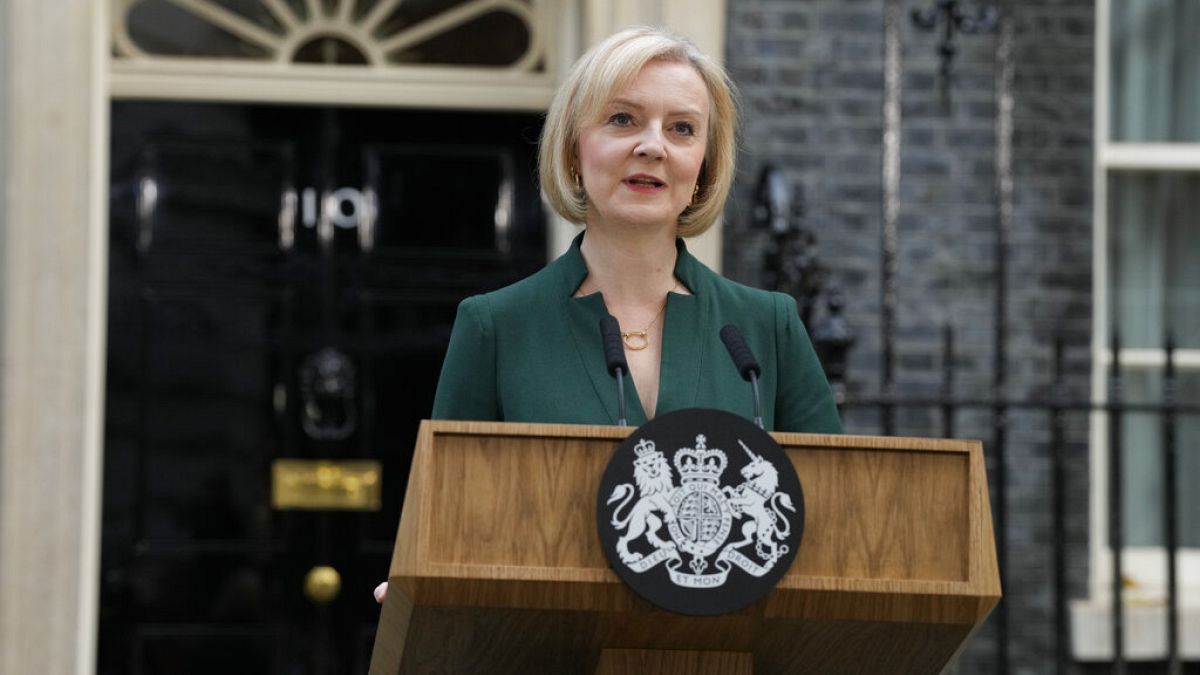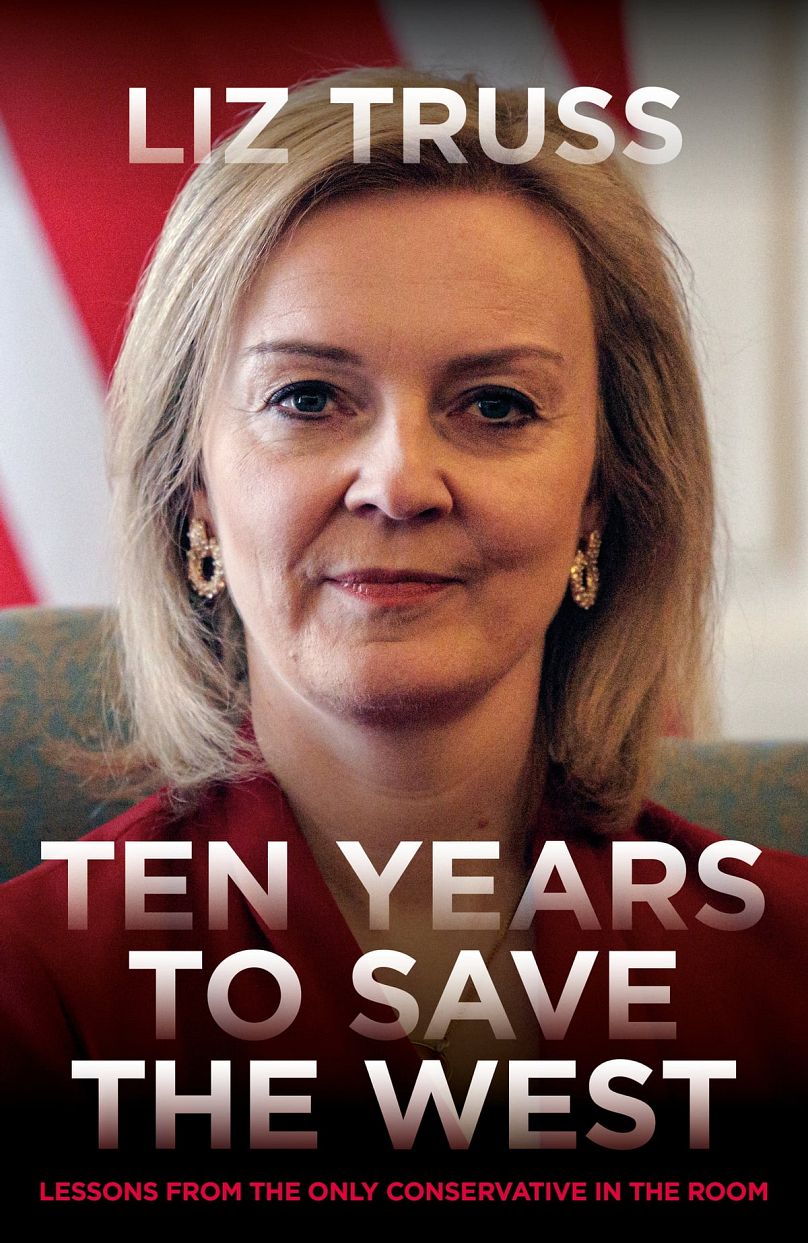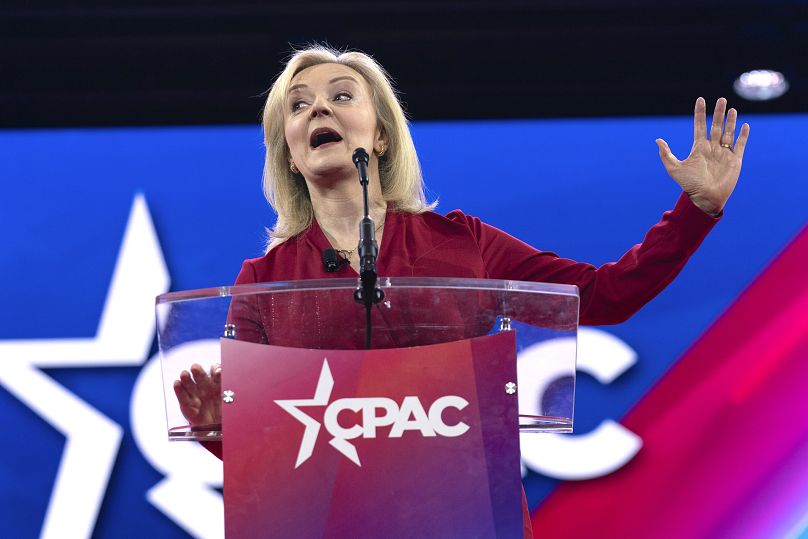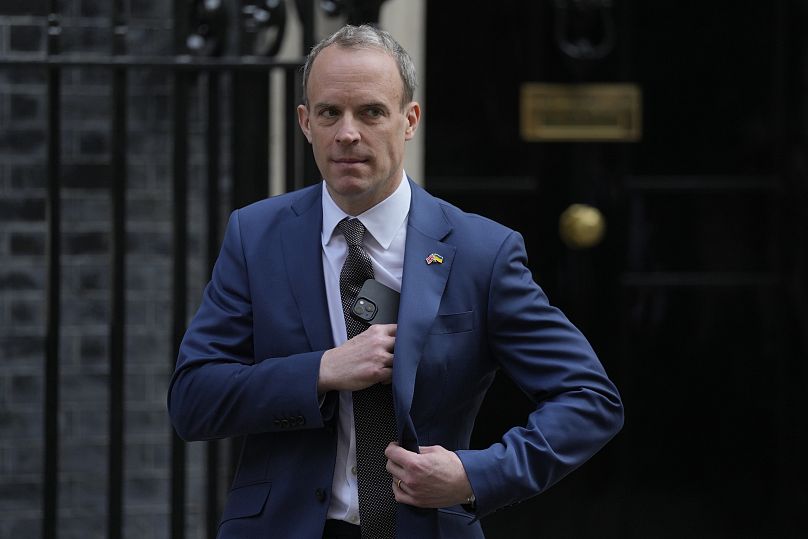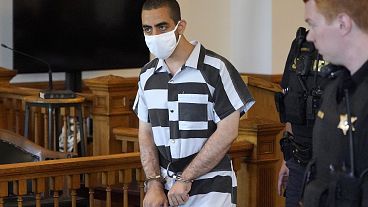Will the former Prime Minister’s latest offering fly off the shelves in great enough volumes to revive the economy she crashed? Or is it enough to save the Western world as she boasts? We’re not so sure.
If there was anyone who imagined that, after kowtowing to Boris Johnson throughout his dismal premiership, leading her own dangerous and divisive culture war campaign for the Tory party leadership contest, crashing the UK economy in one afternoon, and resigning after a mere seven weeks as Prime Minister, Liz Truss would beat a quiet, shamefaced retreat from the public eye, then those people - and there can’t have been many - need to think again.
Today, the shortest-serving British Prime Minister ever releases her new book, the ominously (and poorly) titled 'Ten Years to Save the West: Lessons from the only conservative in the room'.
Yes, on the same day that Salman Rushdie releases his short, focused memoir on the stabbing attack which left the author fighting for his life and claimed the sight of his right eye, Truss, with customarily misplaced brazenness, seems to think rather highly of her chances on the bestseller list.
Timing aside, the book itself seems like an odd pitch.
First we have that strange title, 'Ten Years to Save the West', with its cheap false jeopardy and crass implication that the West is some kind of damsel in distress and not a collective term for the countries which have historically perpetrated some of humanity’s worst sins and continue to abrogate their responsibility to mitigate that real existential jeopardy, the climate crisis.
Then we have that even stranger subheading: 'Lessons from the only conservative in the room'. Which room? Surely not that big room in parliament where all the MPs meet to vote and where Truss inherited a sizable Conservative majority from Johnson?
Failing better
More importantly, what lessons? If failure is the greatest teacher, then Truss has the potential to be one of its greatest students. This could be a sublimely acute, sensitive account of how mediocrity dressed up in self-confidence is no substitute for competence, and that politics should stop vaunting a discourse of ambition for its participants, advocating instead for a cool, dispassionate understanding that probably not everyone could or should lead a country’s government.
In short, it could be a well-deserved and well-delivered apology, a pithy mea culpa.
But what difference a couple of letters make. For this is no apology, but rather an apologia, a self-serving defence.
On the evidence of excerpts already circulating in the press, 'Ten Years' looks set to pick up where Truss left off when she recently headlined at a far-right US conference.
At February’s Conservative Political Action Conference (CPAC), Truss, attending alongside Nigel Farage, made reference to the British “deep state”, a conspiracy theory that elected officials are at the mercy of shadowy, unelected state actors and bureaucrats who anonymously manipulate political outcomes in favour of their own opaque agendas. Truss blamed this conspiracy for her failure to successfully implement her policies, decrying “a huge establishment backlash” against her political programme, adding “a lot of it actually came from the state itself.”
'Ten Years' promises to elaborate on this theme, with an extract shared in the Daily Mail describing the day Truss’s government delivered the catastrophic mini-budget which sent the pound to a 37-year low against the dollar and ultimately forced her to resign from office:
As for who Truss means by the ‘establishment’ in this particular case, it’s the entire community of bankers and traders and economists and academics who didn’t think the mini budget was good for the UK economy. For starters, she specifically blames the Bank of England’s Governor, Andrew Bailey, then works her way down from there.
Soon everyone is at fault - the Treasury, her own party, the media - everyone other than Truss.
What’s remarkable though is how transparent Truss’s rationalisations are. There are plenty of moments in even this short excerpt where she seems incapable of reading her own words back. Again, on the mini-budget’s unpopularity across the board:
You would think that, as she was writing that first line and the reality dawned on her that there was not one expert willing to sign off on her mini-budget’s soundness, Truss might have realised that she is the villain of her own story, a blundering minority of one, rightly considered a frontrunner for the worst Prime Minister in British history.
But if she had realised that, perhaps we never would have had this book, which the publisher, Biteback, promises is ‘[p]eppered with newsworthy anecdotes.’
Of these anecdotes, one is a conversation with the late Queen not long before her death, another is a titbit in which she complains about how former Foreign Secretary Dominic Raab kept protein shakes labelled with his name in a shared fridge.
So much to say, the newsworthiness of information promised by this peek behind the curtain seems to vary wildly, and probably skews strongly towards banality.
Whether there’s enough in Ten Years between the weak apologia and boring anecdotes to outsell Rushdie’s 'Knife' is doubtful. Indeed, when it comes to the Prime Minister who famously lost in a battle to outlast a lettuce, will there be any readers at all to leaf through her latest?
